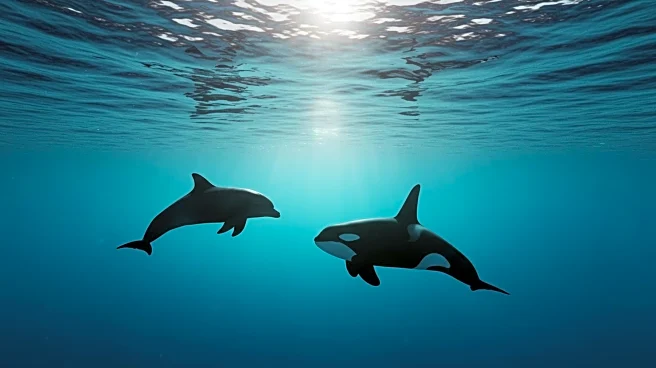What's Happening?
A study published in Proceedings of the Royal Society B has confirmed that dolphins and orcas have reached a point in their evolutionary path where returning to land is biologically impossible. Led by Bruna Farina, the research examined over 5,600 mammal species, finding that full-time marine mammals are now so specialized for ocean life that re-evolving for terrestrial life is not feasible. This irreversible shift has implications for understanding evolution and the future of these species in changing ocean environments.
Why It's Important?
The study highlights the evolutionary rigidity of dolphins and orcas, which could pose risks as ocean conditions change due to climate change. These species are highly specialized for marine life, making them vulnerable to rapid environmental shifts. Understanding their evolutionary path can inform conservation strategies and highlight the importance of stable ocean ecosystems for their survival.
What's Next?
Researchers may focus on studying how dolphins and orcas can adapt to changing ocean conditions. Conservation efforts might be directed towards maintaining stable marine environments to ensure the survival of these specialized species. The study could also lead to further exploration of evolutionary specialization risks in other marine organisms.
Beyond the Headlines
The research underscores the concept of specialization risk, where organisms become so adapted to a specific environment that they cannot adjust to changes. This has historical implications, as similar rigidity has led to extinction events during periods of rapid climate fluctuation.










